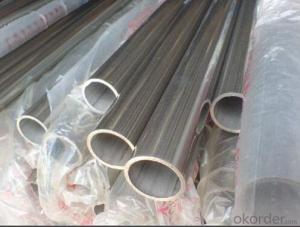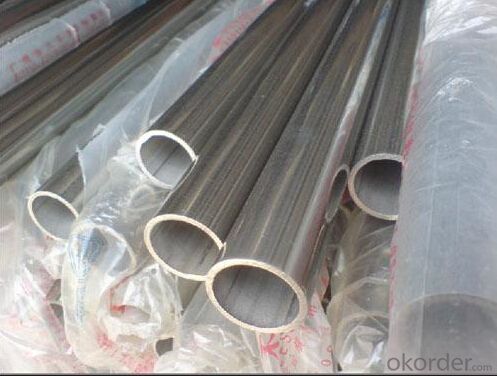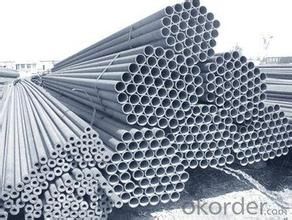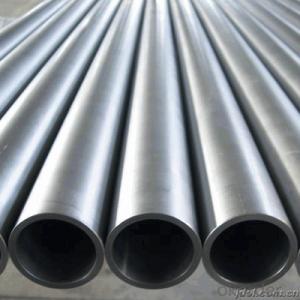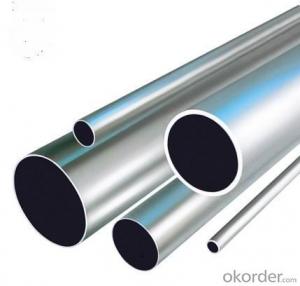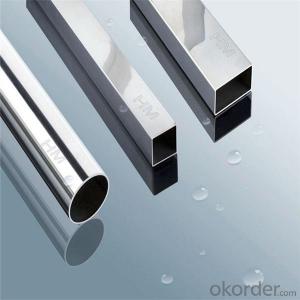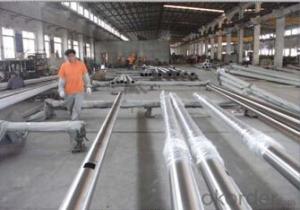Stainless Steel 202 Pipe
- Loading Port:
- China Main Port
- Payment Terms:
- TT or LC
- Min Order Qty:
- 25-35 kg
- Supply Capability:
- -
OKorder Service Pledge
OKorder Financial Service
You Might Also Like
Quick Details
| Standard: | JIS,AISI,ASTM,GB,DIN,CE | Place of Origin: | Guangdong China (Mainland) | Brand Name: | QX |
| Model Number: | 201/202/304/316/316L/430 | Type: | Welded | Steel Grade: | 300 Series |
| Application: | Decoration,construction, upholstery | Certification: | ISO | Welding Line Type: | ERW |
| Thickness: | 0.3mm to 3.0mm | Outer Diameter: | 9.53mm to 159mm | Polish: | Satin,Bright or Mirror |
| Grade: | 201,202,301,304,316,316l,430 ect. | Length: | In gernal 5.8m/6m or as customer request | Process method: | Hot rolled |
| Test: | Squash test, water pressure test,extended test,crystal rot test etc. | Production Standard: | ASTM A554 | Materials: | SUS 304, 201, 316, 316L,430 ect |
| OD tolerance: | + / - 0.15mm | Thickness tolerance: | +/- 10% | Length tolerance: | +/- 10mm |
Packaging & Delivery
| Packaging Detail: | Every tube is sleeved in plastic bag individually, and then several tubes are packed by weaving bag, which is seaworthy. Or 50kg/bundle, 500kg/bundle.We can pack as clients' requirement. |
| Delivery Detail: | 25 - 35 days for a full container. |
Specifications
Stainless Steel Pipe:
1.201,202,301,304,316L,430,etc
2.OD:6mm-159mm
3.Thickness:0.25mm-3.5mm
4.Finish:Mirror,Satin,Hairline
Stainless Steel 202 Pipe Image
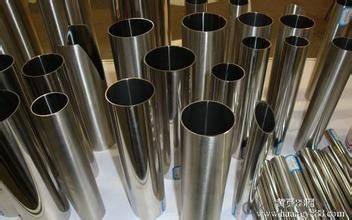
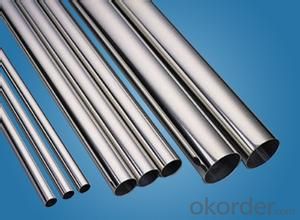
FAQ of Stainless Steel Pipe
①How is the quality of your products?
Our products are manufactured strictly according to national and internaional standard, and we take a test
on every pipe before delivered out. If you want see our quality certifications and all kinds of testing report, please just ask us for it.
Guaranteed: If products’ quality don’t accord to discription as we give or the promise before you place order, we promise 100% refund.
②How about price?
Yes, we are factory and be able to give you lowest price below market one, and we have a policy that “ for saving time and absolutely honest business attitude, we quote as lowest as possible for any customer, and discount can be given according to quantity”,if you like bargain and factory price is not low enough as you think, just don’t waste your time.Please trust the quotation we would give you, it is professional one.
③Why should you chose us?
Chose happens because of quality, then price, We can give you both.Additionally, we can also offer professional products inquiry, products knowledge train(for agents), smooth goods delivery, exellent customer solution proposals.Our service formula: good quality+good price+good service=customer’s trust
SGS test is available, customer inspection before shipping is welcome, third party inspection is no problem.
Any question, pls feel free to contact us !
- Q: What is the difference between carbon steel and stainless steel pipes?
- The main difference between carbon steel and stainless steel pipes lies in their composition and corrosion resistance. Carbon steel pipes are primarily made of iron and carbon, while stainless steel pipes contain iron, carbon, and a minimum of 10.5% chromium. This chromium content in stainless steel provides excellent corrosion resistance, making it more suitable for applications where pipes may come in contact with moisture or corrosive substances. Carbon steel pipes, on the other hand, are more cost-effective and commonly used in applications where corrosion resistance is not a primary requirement.
- Q: How are steel pipes used in LNG terminals?
- Steel pipes are used in LNG terminals for the transportation of liquefied natural gas from storage tanks to various processing units within the terminal. These pipes are designed to withstand the extreme cold temperatures and high pressure of LNG, ensuring safe and efficient transfer of the gas. Additionally, steel pipes are also used for the distribution of LNG to various end-users, such as power plants or industrial facilities, providing a reliable and robust infrastructure for the delivery of this valuable energy source.
- Q: How are steel pipes used in the construction of buildings?
- Steel pipes are commonly used in the construction of buildings for various purposes such as structural support, plumbing, and electrical installations. They provide strength and durability, allowing for the construction of high-rise buildings and large-scale structures. Steel pipes are used to create the framework of the building, forming the skeleton that supports the weight and load of the structure. Additionally, steel pipes are used for plumbing systems, effectively transporting water and sewage throughout the building. They are also used for electrical installations, providing a safe and efficient conduit for wiring. Overall, steel pipes play a crucial role in the construction of buildings, ensuring stability, functionality, and longevity.
- Q: How to perform nondestructive inspection of steel tubes
- Radiographic inspection (RT)One of the earliest nondestructive testing methods is widely used in the inspection of internal defects of metals and non-metallic materials and products, with a history of at least 50 years. It has incomparable unique advantages, that is to test the correctness, reliability and intuition of the defects, and the ray film can be used for the analysis of defects and as a quality certificate archive. But this method also has the disadvantages of more complicated equipment and higher cost, and should pay attention to the protection of radiation.
- Q: What are the different methods of pipe bending for steel pipes?
- Some of the common methods of pipe bending for steel pipes include rotary draw bending, induction bending, and hot bending.
- Q: What are the common standards for coating and lining of steel pipes?
- The most common standards for coating and lining of steel pipes include the American Petroleum Institute (API) standards such as API 5L, API 5CT, and API 5LD. Other widely recognized standards include the American Water Works Association (AWWA) standards such as AWWA C210 and AWWA C213, as well as the National Association of Corrosion Engineers (NACE) standards such as NACE RP0188 and NACE RP0394. These standards ensure the proper selection, application, and performance of coatings and linings to protect steel pipes from corrosion and other external factors.
- Q: Can steel pipes withstand high temperatures?
- Yes, steel pipes can withstand high temperatures as they have a high melting point and excellent heat resistance properties, making them suitable for various industrial applications involving high temperature environments.
- Q: How are steel pipes coated to prevent internal corrosion?
- Steel pipes are coated to prevent internal corrosion by applying a protective layer or coating, such as epoxy or polyethylene, on the inner surface of the pipes. This coating acts as a barrier, preventing contact between the steel and corrosive substances in the fluid being transported, thereby reducing the risk of corrosion.
- Q: How do you repair a damaged steel pipe?
- To repair a damaged steel pipe, the first step is to assess the extent of the damage. Once identified, the damaged section can be cut out and replaced with a new piece of pipe. Alternatively, for smaller damages, patches or clamps can be used to cover the affected area. It is essential to clean and prepare the surface properly before applying any repair method, such as welding or epoxy. Seeking professional help is recommended for complex or extensive damages to ensure a safe and effective repair.
- Q: How are steel pipes connected to other materials like concrete or plastic?
- Steel pipes can be connected to other materials like concrete or plastic through various methods such as welding, flanges, threaded connections, or using specialized fittings. These connections ensure a secure and durable bond between the steel pipe and the other material, allowing for effective transfer of fluids or structural support.
Send your message to us
Stainless Steel 202 Pipe
- Loading Port:
- China Main Port
- Payment Terms:
- TT or LC
- Min Order Qty:
- 25-35 kg
- Supply Capability:
- -
OKorder Service Pledge
OKorder Financial Service
Similar products
Hot products
Hot Searches
Related keywords
